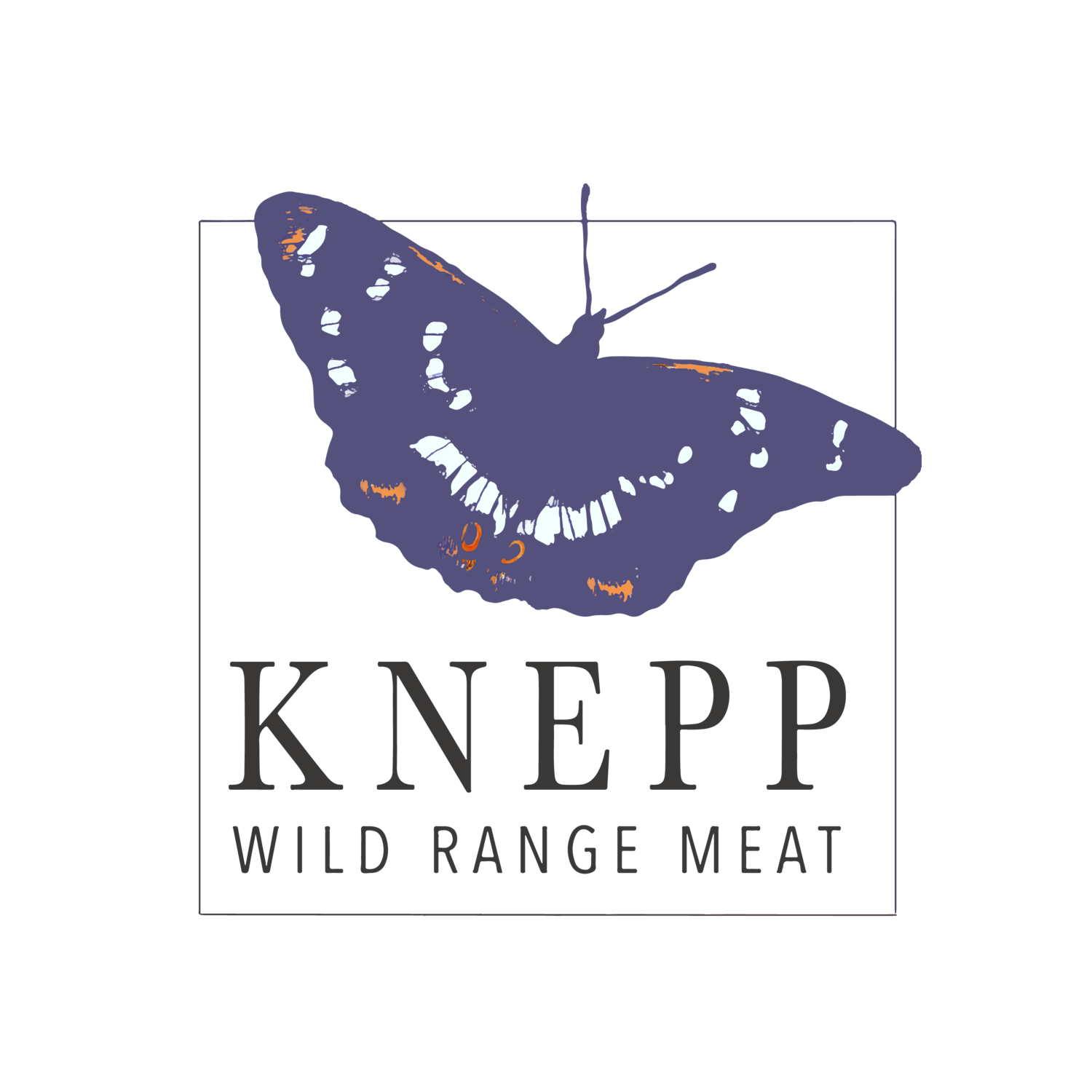Sustainability
Food waste
Just a few generations ago, meat was a luxury and it would have been considered unethical to waste any part of an animal. Thankfully, the recent vogue for nose-to-tail eating is leading the way in a revival of forgotten cuts and more adventurous traditional dishes. Tongue, cheek, liver and kidney are all highly nutritious as well as cheaper than the prime cuts, and we hope you’ll be inspired to try some of our delicious recipe suggestions.
Pasture-fed, organic, free-roaming
Because we use no inputs – no fertilisers or other chemicals, no high-energy feeding systems, buildings or farm machinery – the method of meat production at Knepp is entirely sustainable.
Permanent pasture is one of the most effective systems of carbon sequestration we have on the planet. The grazing and browsing of animals stimulates the growth of roots and mycorrhizal fungi underground and new shoots and foliage above ground, in a continuous recycling of carbon.
The animals’ organic dung and urine returns nutrients to the soil, stimulating the actions of dung beetles and other invertebrates that pull the dung underground, restoring soil structure and fertility. We’ve found as many as twenty-three different species of dung beetle in a single cow pat; and one large dung beetle, the violet dor, which hasn’t been seen in Sussex for fifty years, is now plentiful at Knepp. Since 2000 when we gave up conventional farming and embarked on rewilding, we have more than doubled our total soil carbon, soil organic matter and microbial biomass, and more than tripled our soil mycorrhizae.
Packaging
We’re always aiming to be ahead of the game in reducing packaging and sourcing recycled and recyclable materials. 80% of the vacuum pouches we use are now fully recyclable. With new and improved products being developed all the time we will soon be doing even better, and will be able to offer more Eco-friendly options. Our aim is to use biodegradable packaging as this becomes available.
Our delivery boxes are insulated using sheep’s wool from Woolcool (https://www.woolcool.com/sustainable-packaging) and cooled by Hydropac’s food-grade water ice-packs which are completely recyclable or reusable (https://hydropac.co.uk/product/hydropac-water-ice-packs) .
Copper Bullets
Every year our deer populations are culled. With no natural predator, it is essential to limit the stocking density to ensure all our animals are able to thrive outside all year round.
Lead has been traditionally used in ammunition for centuries. However, new evidence suggests that contamination of the animal and the surrounding environment is potentially dangerous. The UK Food Standards Agency states: “There is no agreed safe level of lead intake” and that exposure to lead “should be reduced as far as possible”. The switch to non-toxic bullets limits the damage to the environment and offers a safe non-toxic alternative to traditional lead. The shift to copper has allowed us to continue to have these vital herbivores in our ecosystem, helping generate and drive biodiversity, whilst also bringing delicious venison to your plate.
Energy
The Estate has four acres of photovoltaic panels producing 900,000 kilowatt hours of solar energy, feeding directly into the grid. This is equivalent to all the electricity used by businesses and houses on Knepp Castle Estate. Several of our larger business properties receive their energy directly from photovoltaic panels on their roofs.
Freezers
Our free-roaming animals live outside all year round in natural herds, so fresh meat is only available for us seasonally - at the end of summer and before winter begins. Freezing therefore plays an essential role in allowing us to store our meat and distribute it all year round.
However, recent studies have shown that chemicals used in cooling systems, including fridges and freezers, are one of the highest contributors to greenhouse gases. Through the Montreal Protocol many countries are collaborating to regulate and phase out ozone depleting substances including HCFCs, which are still commonly used in domestic and commercial fridges and freezers, and air conditioning units. Using the very latest technology our CUBO2 Smart refrigeration system – currently the largest independent system of its kind in use in the UK – replaces these harmful HCFC refrigerants. We have also developed systems with our cooling experts that enable us to harvest the thermodynamic properties for all our hot water.
